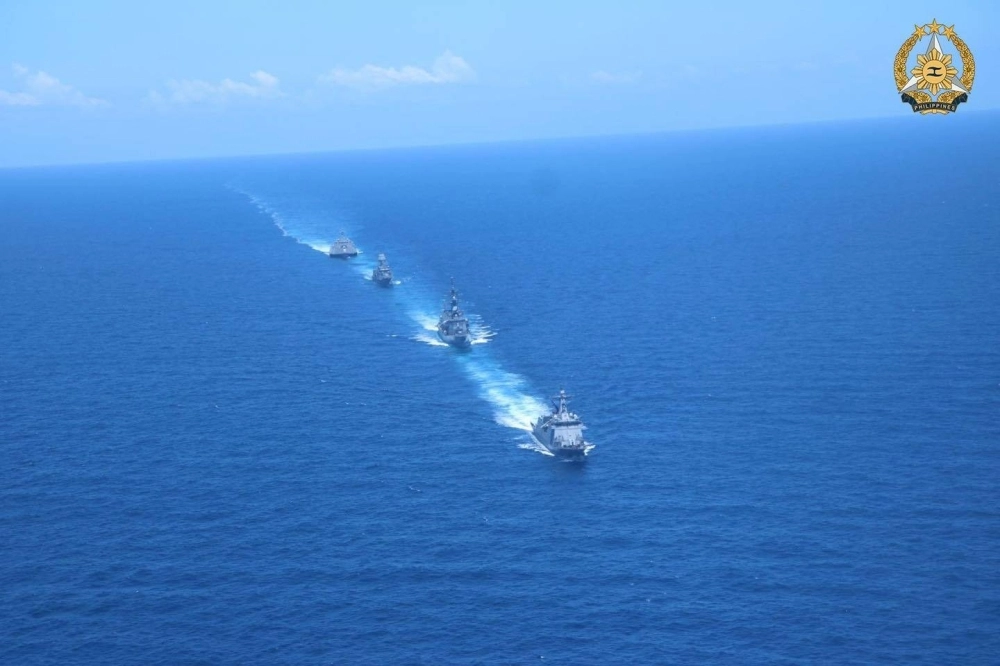Japan joined the United States, Australia and the Philippines for joint naval and air drills in the disputed South China Sea on Sunday, as China announced its own exercises in the strategic waterway.
"The Armed Forces of the Philippines, United States Indo-Pacific Command, Australian Defence Force and Japan Self-Defense Forces successfully conducted the first Multilateral Maritime Cooperative Activity in the West Philippine Sea on Sunday," the Philippine military said in a statement, using Manila's official designation for sections of the South China Sea.
The statement said that the the joint exercise involved naval vessels and aircraft and had taken place in an area within the Philippine’s exclusive economic zone in the strategic waterway.

















With your current subscription plan you can comment on stories. However, before writing your first comment, please create a display name in the Profile section of your subscriber account page.